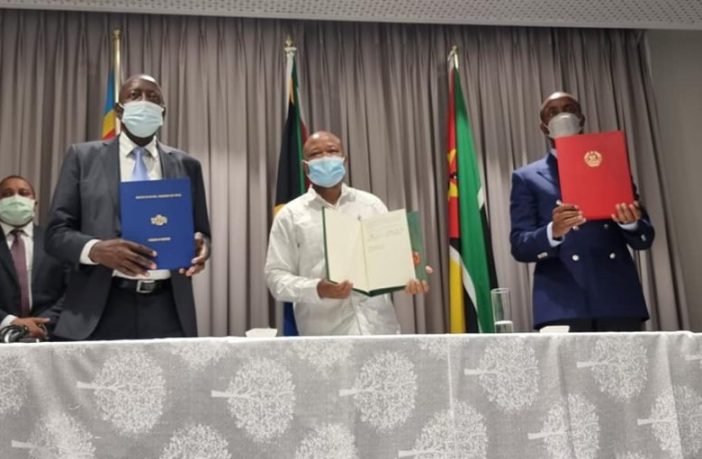- Originally signed in 2002, the Tripartite Interim Agreement between the Republic of Mozambique, the Republic of South Africa and the Kingdom of Swaziland for Co-Operation on the Protection and Sustainable Utilisation of the Water Resources of the Incomati and Maputo Watercourses.
- Last Thursday an agreement to establish a watercourse commission that will ensure the sharing of watercourses between the three countries was signed.
The Incomati and Maputo Watercourse Commission (INMACOM) will also guarantee the protection and sustainable utilisation of water resources among the three countries.
Mozambique was represented at the relevant meeting by Minister of Public Works, Housing and Water Resources, João Osvaldo Machatine; South Africa by its Minister of Water and Sanitation, Edward Senzo Mchunu, and the Kingdom of Eswatini by the Minister for Natural Resources and Energy, Peter Bhembe.
Minister Machatine said that the agreement should also be seen as a manifestation of the three countries’ support for the integrated management of water resources.
Minister Machatine also remarked that measures were planned to increase the water supply to the city of Maputo, Ponta Dobela, and for the irrigation of around 8,000 hectares in the hydrographic basin of the Maputo river.
Speaking on behalf of the Government of Mozambique, Minister Machatine encouraged the SADC Basin Organizations and the recent Basin Commission to prepare transboundary projects and mobilise funds to encourage increased climate resilience in the Incomati and Maputo river basins.
Director of the SADC Infrastructure Secretariat, Mapolao Mokoena, said: “This event marks an important milestone in the implementation of regional transboundary management between Eswatini, Mozambique and South Africa. A key dimension of transboundary cooperation is the need to share water and the benefits it generates. Reasonable and equitable use of water, avoiding significant transboundary harm and ensuring sustainability, are among the key principles of transboundary water cooperation.”
Eswatini’s Minister of Natural Resources and Energy Peter Bhembe said the agreement “is in line with the SADC principles and guidelines enshrined in the revised protocol on shared watercourses, which is to foster closer cooperation for sustainable and coordinated management and utilisation of the shared water courses. Other river basins in the region have gone ahead of us and will therefore serve as learning guides for us as we embark on this new journey”.
“Today’s event solidifies the commitment of all three countries to ensuring water provision and water security for their citizens; it could not have been fathomed that the signing of the Tripartite Permanent Technical Committee Agreement in 1983 would lead to what we are here to witness today. Whilst it has taken us some time to get to this point, we labour not on that, but rather celebrate the eventuality of it,” said SA’s Minister of Water and Sanitation, Senzo Mchunu
Rivers to be managed under the agreement are the Ngwavuma, Lusutfu, Lomati, Komati, Crocodile and the Sable, all originating in South Africa and flowing through Eswatini to the Indian Ocean in Mozambique. Major water projects within this project include Maguga and Driekoppies dams, the Lower Usuthu Smallholder Irrigation project, the Vaal-Usuthu ESKOM hydropower generation plants, the Corumana dam and the Phongolapoort dam, among others.
Author: Bryan Groenendaal
Source: Department of Water and Sanitation South Africa















